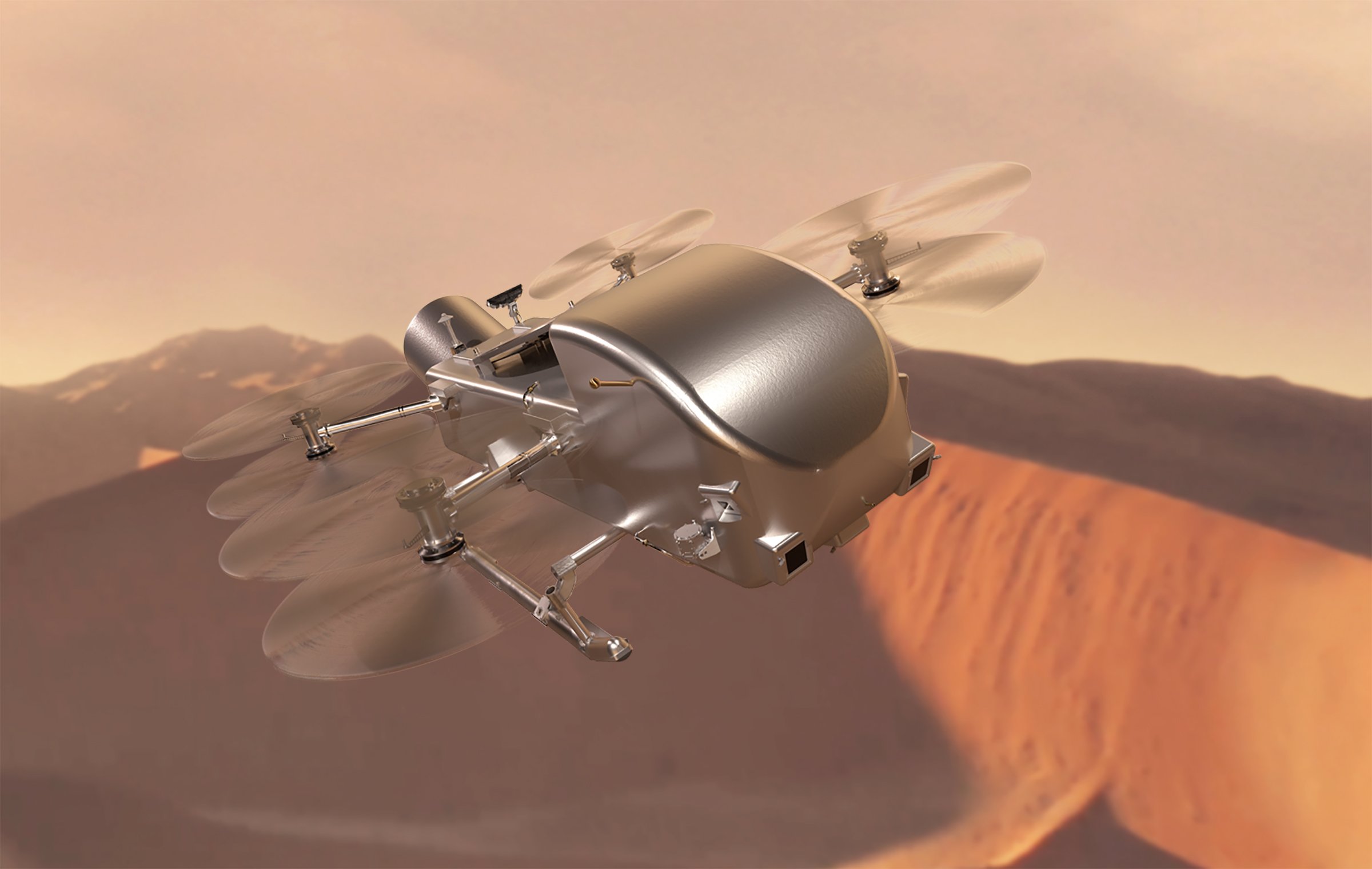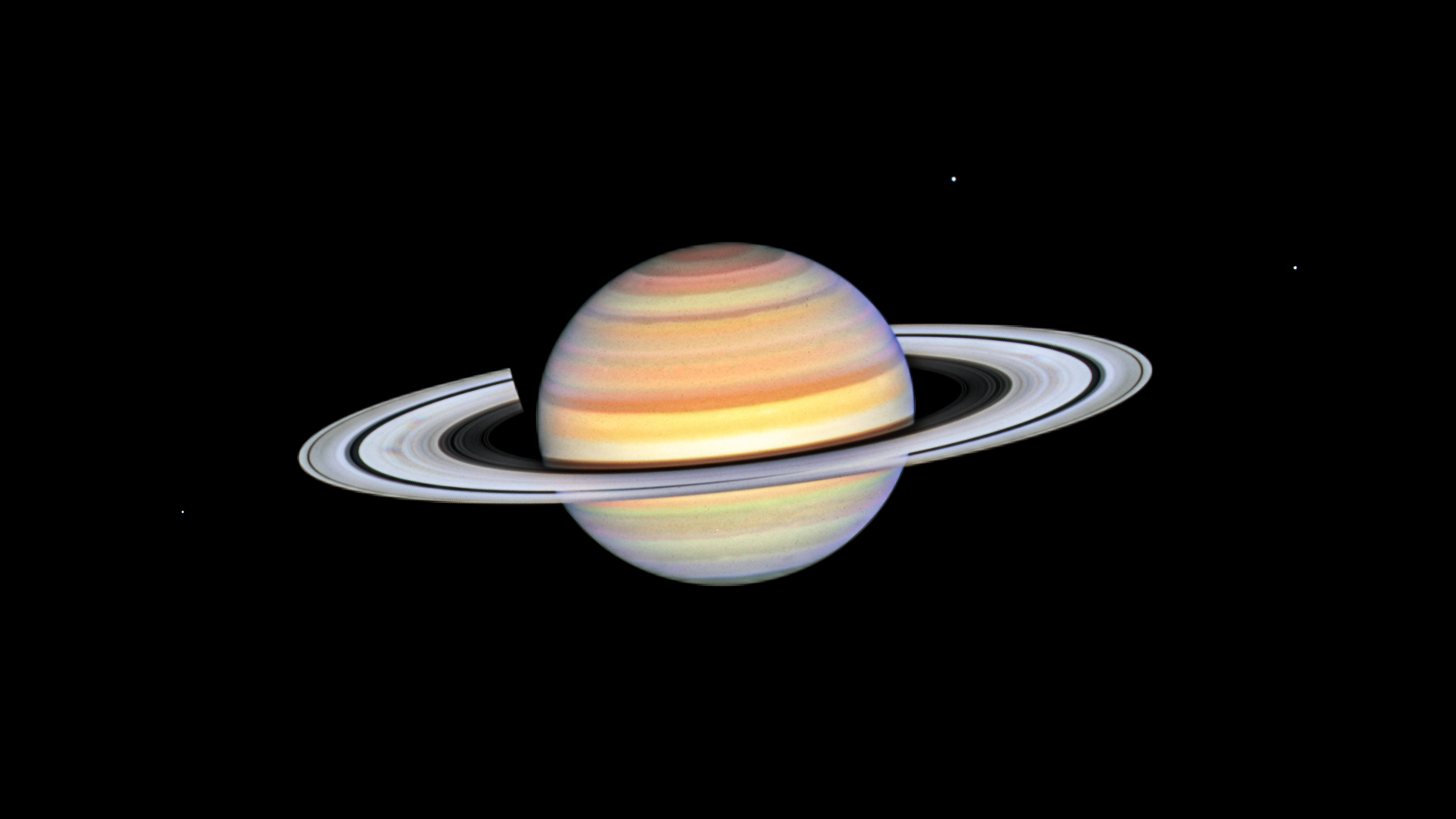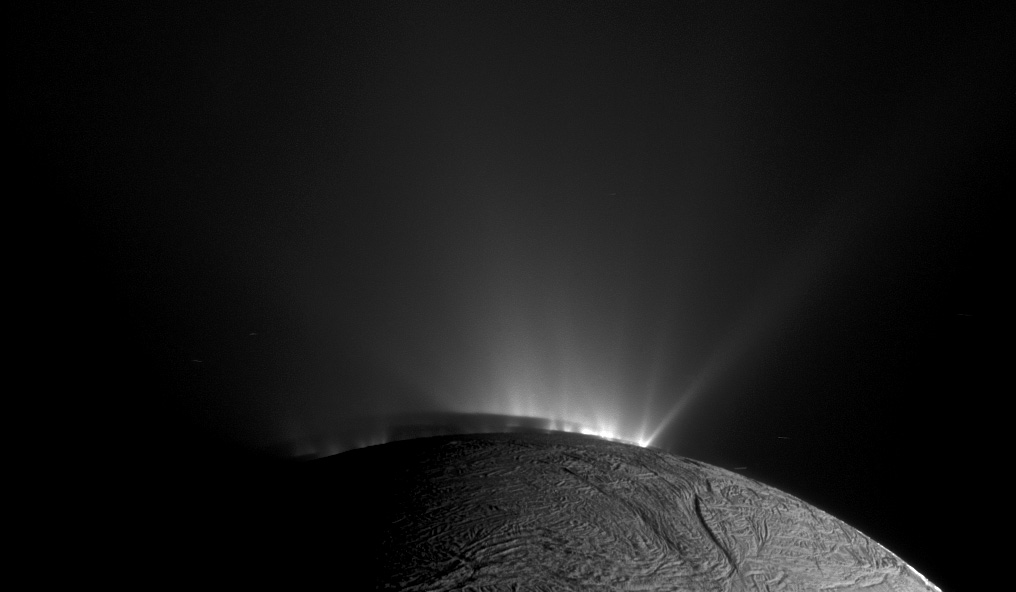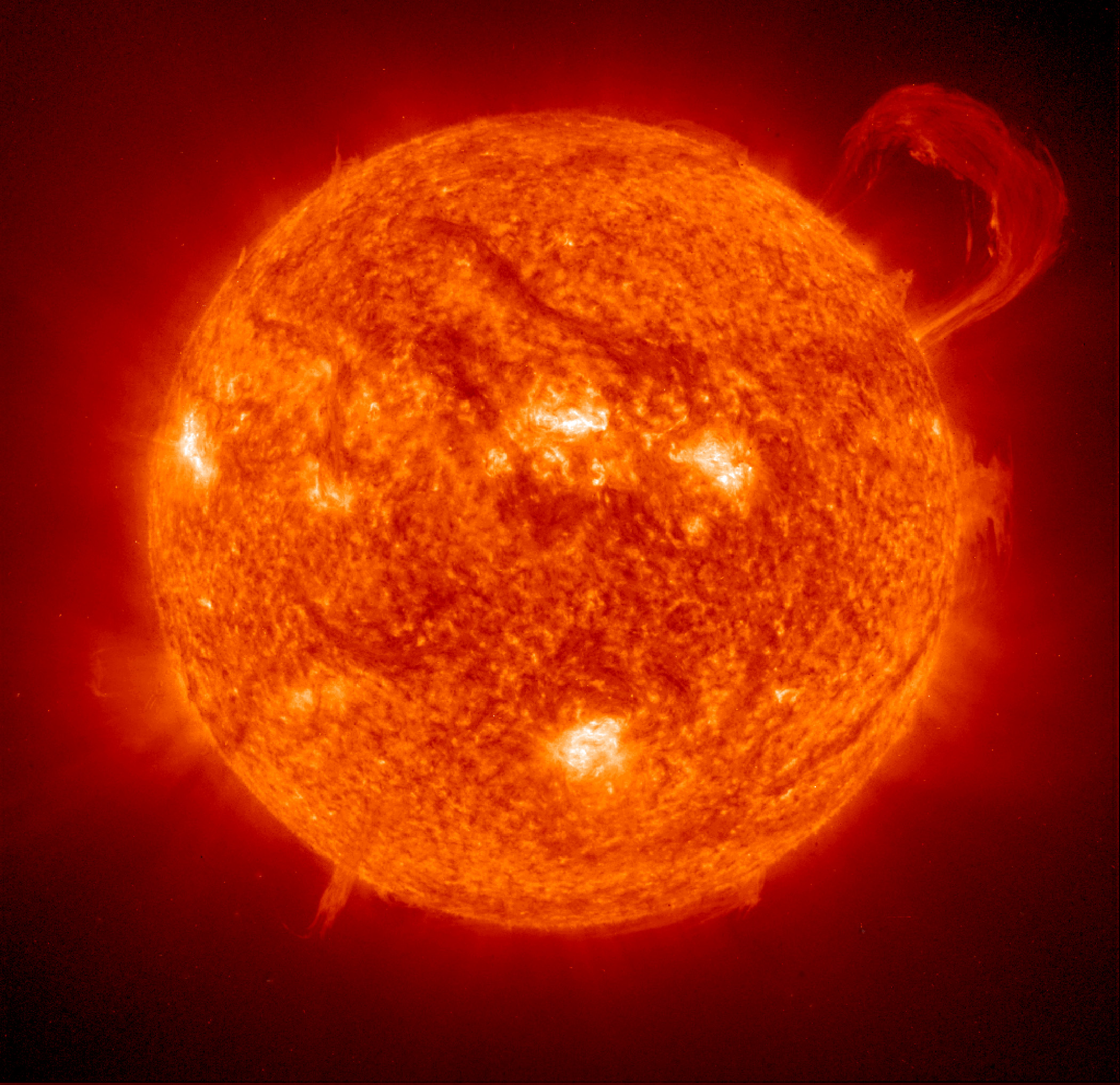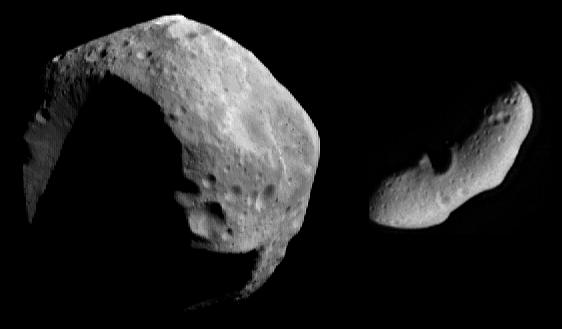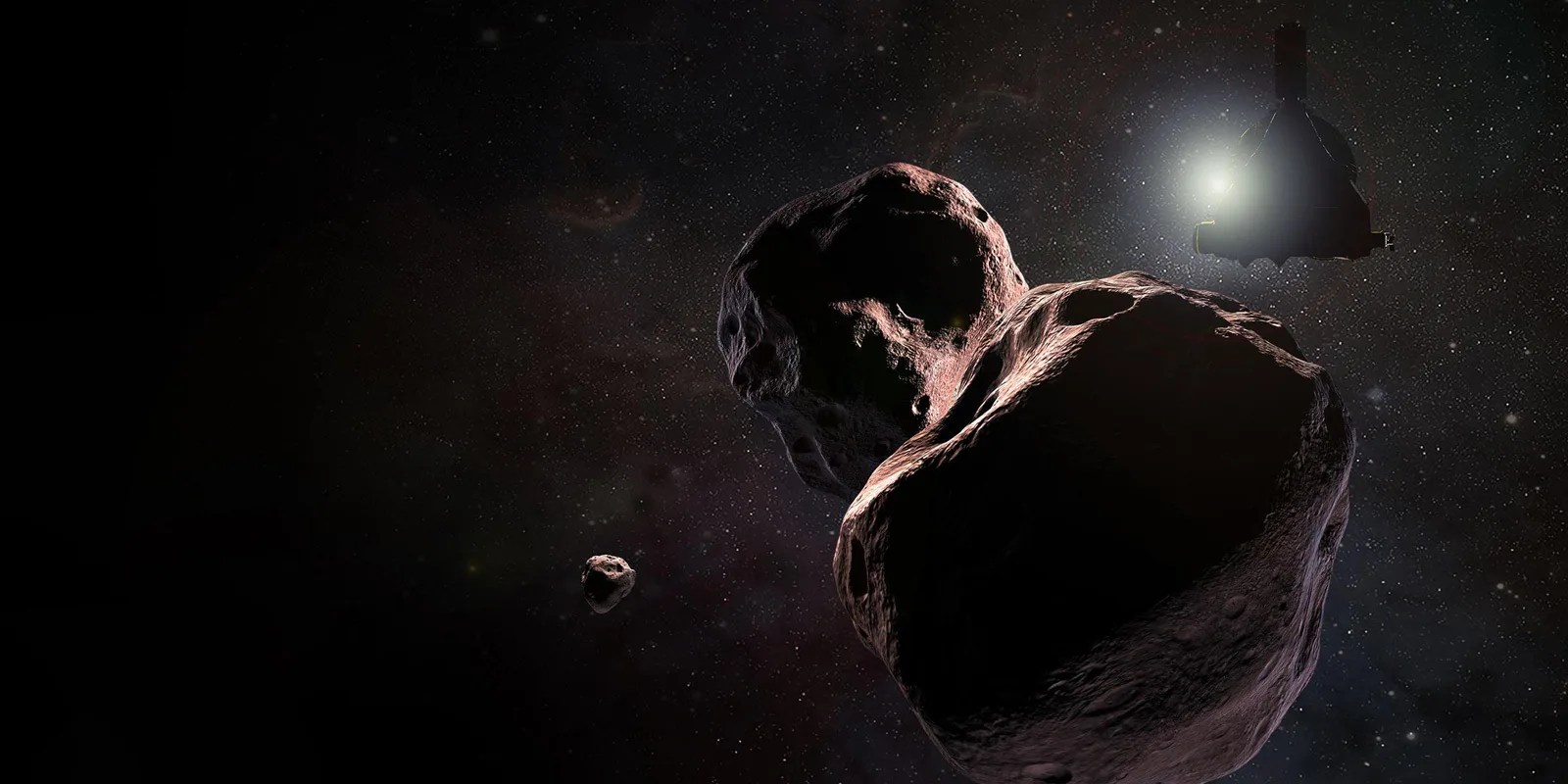5 min read
Cassini Significant Event Report
For Week Ending 02/07/03
The most recent spacecraft telemetry was acquired from the Goldstone tracking station on Monday, February 3. The Cassini spacecraft is in an excellent state of health and is operating normally. Information on the spacecraft's position and speed can be viewed on the "Present Position" web page.
On-board activities this week included a memory readout of flight software partitions, and clearing of the ACS high water marks. Instrument activities included Radio and Plasma Wave High Frequency Receiver (RPWS) calibrations, RPWS high rate observations, Cosmic Dust Analyzer (CDA) high voltage test, and uplink and execution of a CDA flight software checkout mini-sequence.
The Project held the first of two uplink approval meetings for the Attitude Control Subsystem(ACS) and Command and Data Subsystem (CDS) flight software uplink and checkout activities. The project approved the procedures and files for the transfer of the ACS and CDS Flight Software to the solid-state recorders. Also approved were the procedures and files for the checkout of the ACS software. A second approval meeting addressing the CDS checkout procedures will be held in early March.
The Spacecraft Operations Office completed the second Probe Relay Operational Verification Test, which tests a portion of ground operations during the probe mission. The third segment of the test will be delayed to allow the teams to factor in the lessons learned from the two previous runs.
The Navigation team has released a new Cassini Reference Trajectory update in support of the Huygens Probe mission. Changes include addition of trajectory correction maneuvers (TCM) 19a and 19b. TCM-21, which has no deterministic component, achieves both the ascending and descending ring-plane crossing distances around Saturn orbit insertion of 158,500 km. Ring plane crossing times and closest approach to Saturn are approximately 25 seconds earlier, SOI still starts at 1:09:57 UTC but now ends at 02:46:53 UTC on July 1, 2004. The Titan-b target was changed slightly to accommodate the new probe mission, the probe targeting maneuver (PTM) and Orbit deflection maneuver (ODM) times were updated, and the PTM now targets to a -65 degree body-fixed probe entry angle.
The Orbiter Science and Target Working teams delivered Revs 27-29 this week. Not included were the T17 and T18 Titan flybys. These flybys require thruster usage, so final integration has been deferred until March/April 2003 when the tools to evaluate thruster consumables are delivered.
The first merge process has been completed and reports published for Science Operations Plan implementation of tour sequences S15/S16. The next official input port is scheduled for mid-February.
Final images have been generated by the Multi-mission Image Processing Laboratory from stellar observations performed three weeks ago for instrument calibration purposes. There are 49 Imaging Science Subsystem (ISS) Narrow Angle Camera images and 47 Wide Angle Camera images processed. This completes ISS science image activity until after the conclusion of C36, which focuses on CDS and ACS flight software checkout. ISS will be supporting optical navigation engineering tests during this sequence.
The Instrument Operations Radio Science Subsystem task leader made a summary presentation at the February NASA Quarterly on the goals and accomplishments of the second Gravitational Wave Experiment that ended in mid-January.
All teams and offices supported a Cassini / NASA Quarterly review.
The Instrument Operations team hosted a distributed operations site Operations Team Lead meeting in conjunction with the January Project Science Group meeting. Agenda items included a demo of new Cassini Information Management System 2.4 capabilities, a tutorial about the new Real Time Interface Unit (RTIU)/sequence translator, and RTIU/ITL (Integration and Test Laboratory) bus monitor traffic data capabilities.
The CIRS science team delivered version 2.0 instrument flight software to the Project Software Library. It will be uplinked to the spacecraft in several weeks.
Delivery coordination meetings were held to review Radio Science Subsystem Predicts V1.3, Cassini Information Management System version 2.4, the Cassini Operations Reference Encyclopedia V3.1- containing flight rules and the telemetry dictionary, and mPLOT v1.l5 - an AACS plotting tool used by the Kinematic Predictor Tool.
A first cut at how an extended mission might be developed, designed, and implemented by the project was presented at this week's Mission Planning Forum.
The Mission Assurance Manager convened the Cassini Risk Teams this week. Probe Mission and Facility Instrument identified risks were discussed and dispositioned by the Risk Management Team. Risks identified by the Principal Investigators were dispositioned later in the week, in conjunction with the ongoing Project Science Group activities. All risk items were successfully dispositioned and action items were assigned for refinements, as necessary.
Last week Cassini Outreach presented current status and near term goals of the mission's outreach program to team members attending the Project Science Group Meeting, and Saturn Observation Campaign Members held star parties in Colorado, Virginia, and the Netherlands.
Additional information about Cassini-Huygens is online at http://saturn.jpl.nasa.gov.
Cassini will begin orbiting Saturn on July 1, 2004, and release its piggybacked Huygens probe about six months later for descent through the thick atmosphere of the moon Titan. Cassini-Huygens is a cooperative mission of NASA, the European Space Agency and the Italian Space Agency. JPL, a division of the California Institute of Technology in Pasadena, manages the mission for NASA's Office of Space Science, Washington, D.C.
Media Relations Office
Jet Propulsion Laboratory
California Institute of
Technology
National Aeronautics and Space
Administration
Pasadena, Calif. 91109.
Telephone (818) 354-5011

